‘Wild? I was absolutely livid!’ Those five words can’t fail to bring up visions of a particularly articulate gorilla, with a bent for Johnny Mathis, having a bad-tempered exchange with his captor during a television interview. One of the best known sketches in the Not the Nine O’Clock News stable, it’s a perfect example of the superb writing the show employed.
It’s interesting to note that the original line-up for Not the Nine O’Clock News was entirely male, considering the politically charged route the programme was to take, and who the major political figure of the time was. Mind you, the line up would also be changed considerably before the show really got going; from the six original cast members (which included John Gorman, member of pop group The Scaffold, and comedy actor Chris Langham) only Rowan Atkinson remained when the final four were decided.
Noted comedy writer and producer John Lloyd took the idea for a satirical news sketch show to the heads of BBC Comedy and Light Entertainment and on the back of a successful meeting, got the green light for six programme, with the caveat that Sean Hardie, who had worked in the current affairs department at the BBC, was brought in to partner him.
Originally meant to be going out on BBC2 2 April 1979 (at 9pm, the same time as the BBC1 news, hence the name of the show), when the General Election was called it was pulled from the schedules for being ‘too political’. This not only frustrated the cast and crew, it also messed up what was to have been the first BBC ‘comedy crossover’; Not the Nine O’Clock News was to have followed Fawlty Towers that evening, and none other than Basil Fawlty (John Cleese) himself was to have introduced the new programme during a short sketch between the two. Using the background of the technicians’ strike that was in progress, the UK’s most intolerant hotelier was to have been seen explaining that because there could be no show that week, a ‘tatty revue’ would be replacing it instead. When series one finally went out (from October 16 until 20 November 1979) the Cleese sketch was then shown, but it must have been slightly confusing to viewers as the strike was by then over.
During the hiatus between the planned and actual screening dates for series one Lloyd and Hardie did a bit of reshuffling; Atkinson and Langham remained whilst the other performers left the show. Deciding that a woman was needed to add balance, they first asked Victoria Wood, who turned it down, before Lloyd met Pamela Stephenson socially and successfully persuaded her to join instead. Mel Smith was then recruited as the fourth member. Series one wasn’t particularly well received, with lukewarm reviews of its mix of topical stand up and sketches. Griff Rhys Jones had appeared as an extra in the first series, and the choice was made that he should step from minor to major cast, replacing Chris Langham for season two (31 March to 12 May 1980). This appeared to have been a difficult decision to make; in 2005 Atkinson, Smith, Stephenson and Lloyd appeared with Langham on Radio 4’s The Reunion, and whilst talking to Sue McGregor about the changing line-up Lloyd appeared to be assuming responsibility for Langham’s dismissal. It also revealed that Atkinson had made the case for him staying on board.
Whatever the reasoning behind it, Lloyd and Hardie had now found comedy gold; Atkinson, Smith, Stephenson and Rhys Jones scored a huge hit with series two’s mix of satire, topical lampooning, sketches and parodies. The aforementioned Gerald the Gorilla, the Conservative MP and the Hi-Fi Salesman are all memorable characters in what was a fast-paced and hilarious alternative comedy series.
A whole host of writers who went on to have heavy-weight careers were involved with the show: David Renwick (One Foot in the Grave, Jonathon Creek), Colin Bostock-Smith (Metal Mickey, Smith & Jones, The Two Ronnies), Andy Hamilton (Drop the Dead Donkey, Outnumbered), Peter Brewis (The Lenny Henry Show, Spitting Image), Richard Curtis (Blackadder, Mr Bean) and Clive Anderson (who has written for Smith & Jones and Frankie Howerd). However, because of the fast paced nature of the show, Lloyd and Hardie accepted ideas from anybody who wanted to write for them, which allowed them to pick the best material and helped keep the show fresh and pacey. To ensure it was as up to date as possible, and for the topical material to be as razor-sharp as it could be it was recorded only a few days before it was broadcast. Howard Goodall (Blackadder, Red Dwarf, Vicar of Dibley) was musical director; parodies of popular bands and styles of the time were a key feature of the show (some of the songs, including their ABBA send up Supa Dupa were released as singles) and benefitted from the same effects as many current pop videos. The prolific composer Philip Pope (the Hee Bee Gee Bees, KYTV) was a regular contributor.
The third series went out from 27 October to 15 December 1980, with a fourth following on 1 February 1982. The same year, the team adapted it into a successful stage show in both Bath and London. Despite, or perhaps, because of this the four stars of the show decided to leave on a high, and brought Not the Nine O’Clock News to a close. Atkinson went on to achieve comedy greatness with Blackadder and a global following with Mr Bean, as well as numerous film and theatre roles. Rhys Jones and Smith founded Talkback Productions (which has produced British comedy shows such as I’m Alan Partridge, Smack the Pony and Big Train) and created their own sketch show Alas Smith and Jones. Smith continued acting, and also moved into directing and producing, and whilst Rhys Jones also continued acting, he has also carved out a career as a television presenter. Stephenson transferred into films, before retraining as a psychologist in the US. She still makes occasional appearances on television and radio in an entertainment capacity.
A mark of a good comedy is the ability to make people laugh years after it is first appearance. Not the Nine O’Clock News is definitely one of these shows. Despite a lot of the sketches being rooted firmly in the political and cultural zeitgeist of the late seventies and early eighties, the jokes and satire can easily be transplanted into current times, and the rest is just timelessly funny. It was the first ‘alternative comedy’ programme on British television and influenced generations of new comedians and sketch shows.
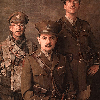
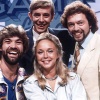
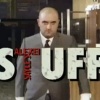
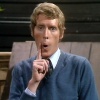
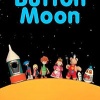
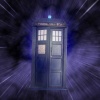
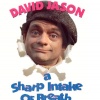
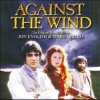
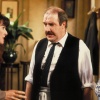
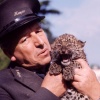
Do You Remember Not The Nine O'Clock News?
Do You Remember Not The Nine O'Clock News?